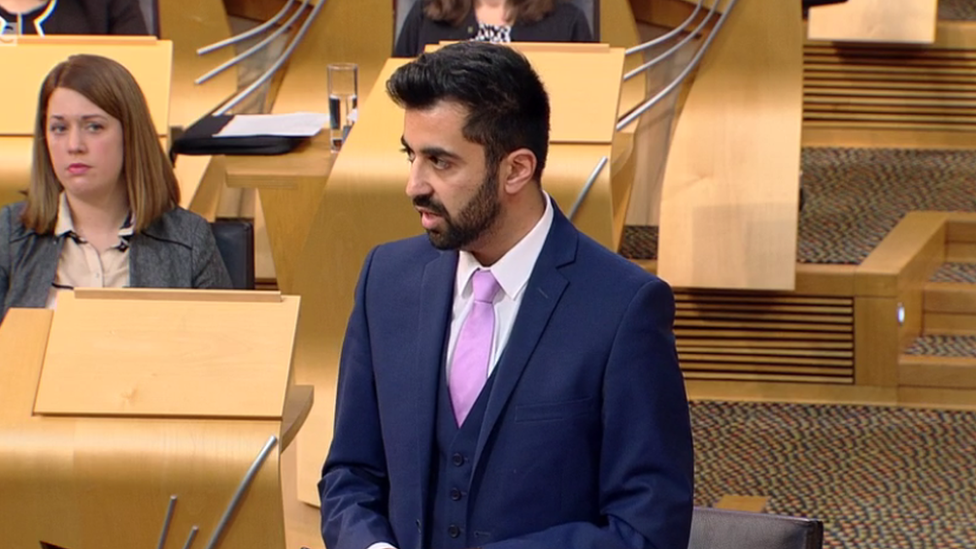First Minister's Question: Train talks and budget deals
- Published
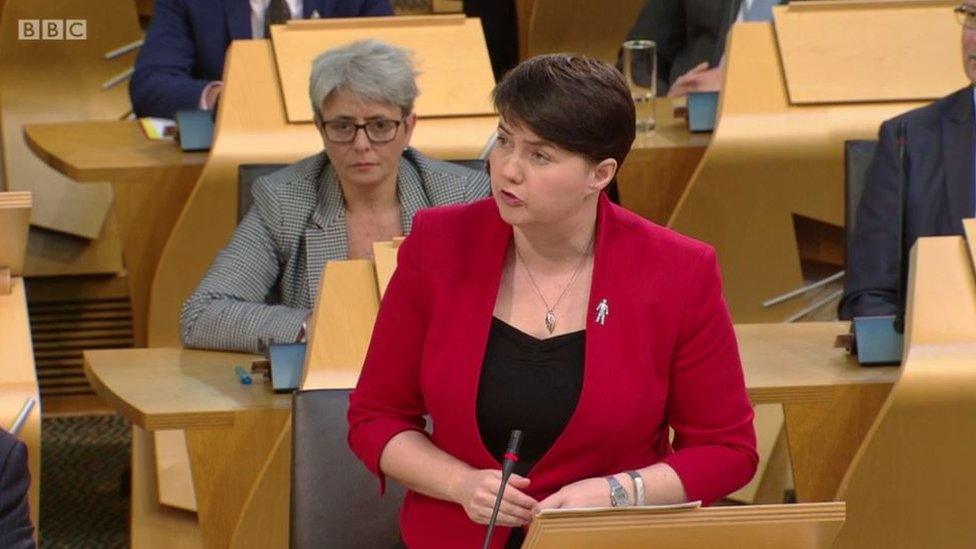
Ruth Davidson saw her line of questioning to the first minister somewhat derailed
In politics - as on our railways - timing is key. Such became clear once more during questions to the First Minister at Holyrood today.
I suspect Ruth Davidson knows by now that she should have tackled the FM on the issue of rail transport last week. She did so today - but stumbled over a tricky set of points, somewhat derailing her attack.
Ms Davidson, she of the principal opposition Conservatives, opened her attack in fine fettle. There were, she said, some 250 items in the improvement programme imposed upon ScotRail as a consequence of under-performance.
Her timbre stentorian, she demanded of the First Minister: "Will her government now publish those 250 action points - or not?" Up popped Nicola Sturgeon to reply: "Yes." She said a bit more but the impact was all in that opening word.
Nothing daunted, Ms Davidson persisted. Except it appeared that she was decidedly daunted, indeed thrown. She began to read her prepared supplementary - which was formulated on the presumption that the FM would turn down the request for publication.
She rallied - if not with aplomb, at least with a disarming smile. But the moment was lost. Her attack, entirely understandably, lacked bite from that moment onwards.
Dugdale's Dossier
Still, there will be other days. But did not Labour's Kezia Dugdale make it worse still for the cheerfully grinning Tory leader?
Ms Dugdale was already basking in the knowledge that she had raised the trains last week. But she had more. She brandished a weighty dossier - OK, ten pages with big print and lots of pictures.
It was Labour's plan for a price freeze on rail fares for next year. Compensation, she argued, for poor service at the moment.
You could almost hear Ruth Davidson's teeth grinding as, still contriving to smile, she contemplated the prospect that her Labour rival had outpaced her again with a cunning wheeze. One that I now believe Ms Dugdale will evangelise to commuters.
Nicola Sturgeon responded in somewhat chilly fashion. Yes, of course, she would look at any constructive plan - but she wondered where the cash was coming from and whether it would risk eating into the Scottish Government's substantial plan to upgrade rail services.
You could almost hear Kezia Dugdale thinking: job done. Timing is all.
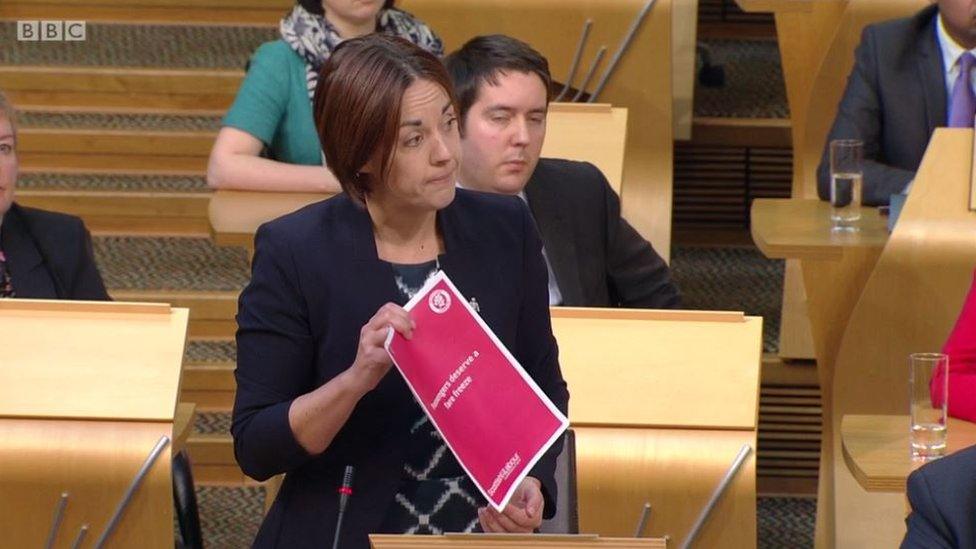
Kezia Dugdale brought along a dossier as an FMQs prop
And timing matters too in the negotiations to come over the Scottish Budget. Looking at the emerging shape, it is hard to escape the conclusion that it may be time... for the Greens. I stress, may.
Patrick Harvie, he who co-convenes the verdant tendency, seemed to add to that impression by delivering what amounted to a shopping list with regard to the Budget.
To recap slightly. The Chancellor has set out plans for the UK in his Autumn Statement. But it is for the Scottish finance secretary to propose spending plans for devolved matters. And, in these days of enhanced Holyrood power, it is for that self-same FS to outline Scottish income tax rates and bands.
That wider scope, those wider powers, increase the prospect for division among the parties. But, equally, ministers need to assemble a majority to get their Budget carried. They lack such a lead at Holyrood.
Dealmaker Derek
From 2007 to 2011, the SNP were similarly short of a majority. In those days, John Swinney negotiated long and hard, generally contriving to strike a deal with the Tories in return for concessions to the Conservative agenda. (Margo MacDonald usually managed to extract something as well, to win her independent vote.)
So what might happen, now that we are back to those minority days - albeit by a narrower margin? Derek Mackay has begun the search for a deal, by offering talks.
Given the arithmetic, he only needs one party to support him - or, at least, abstain. Where might he look?
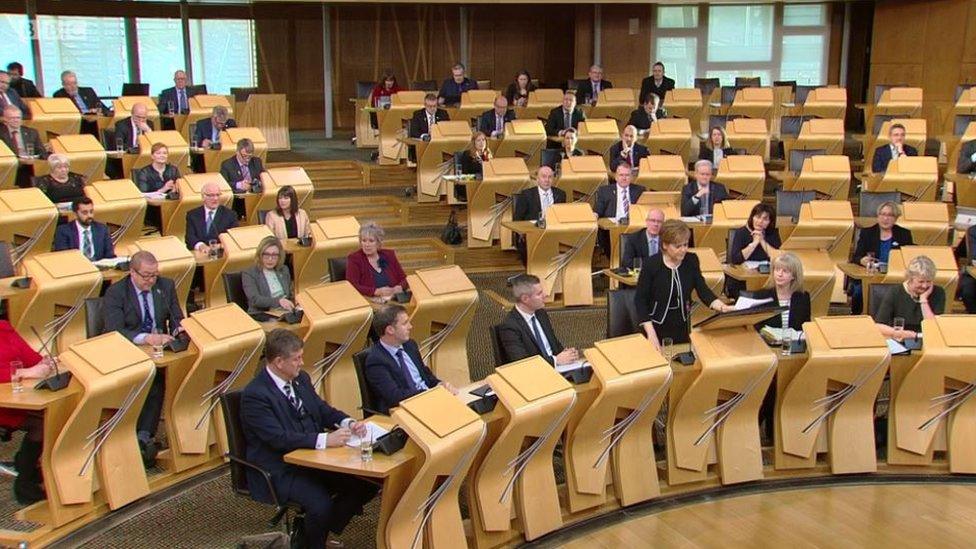
As a minority government, the SNP will need at an opposition party to at least abstain in the final budget vote
The Conservatives? Certainly, their approach in 2007-11 was to bargain, gaining for example concessions on business rates and town centre redevelopment.
But their approach, their self-awareness, has altered. At the 2016 election, they contrived to place themselves in contradistinction to the SNP as the chief defenders of the Union.
That sense of status was bolstered by their relative success in those elections. Put most simply, they are now sounding more oppositional.
Plus there is the question of tax. Nicola Sturgeon today stressed that her government would not replicate the Chancellor's effective cut for higher earners, achieved by increasing to £50,000 the higher rate threshold.
Ms Sturgeon is at pains to stress that this does not increase the individual tax bill for people in Scotland. But it would mean that Scotland residents would pay more than comparable folk in England.
I do not believe that the Tories could bring themselves to back a budget which resulted in such a development. So I think, at this stage, it is: Tories - No Deal.
Deal or no deal
Labour? Don't think so. Their longer-term objective is to regain the ground lost to the SNP. Labour's aim will be to set themselves firmly apart from the Nationalists, suggesting that it is Labour MSPs who are speaking up for the proletariat.
Hence their 2016 manifesto proposal to increase income tax on the standard and upper rates by one per cent, using the money to "stop the cuts to public services." They have continued to pursue that objective since - and will do so in the budget negotiations.
I do not remotely see Nicola Sturgeon overturning a key element of her programme in order to bolster the party who came third in the election. So it's Labour - No Deal.
Ditto the Liberal Democrats. On tax, they wanted a Penny for Education. They will talk with Mr Mackay - as will the other parties. But, again as things stand, I think it is: LibDems - No Deal.
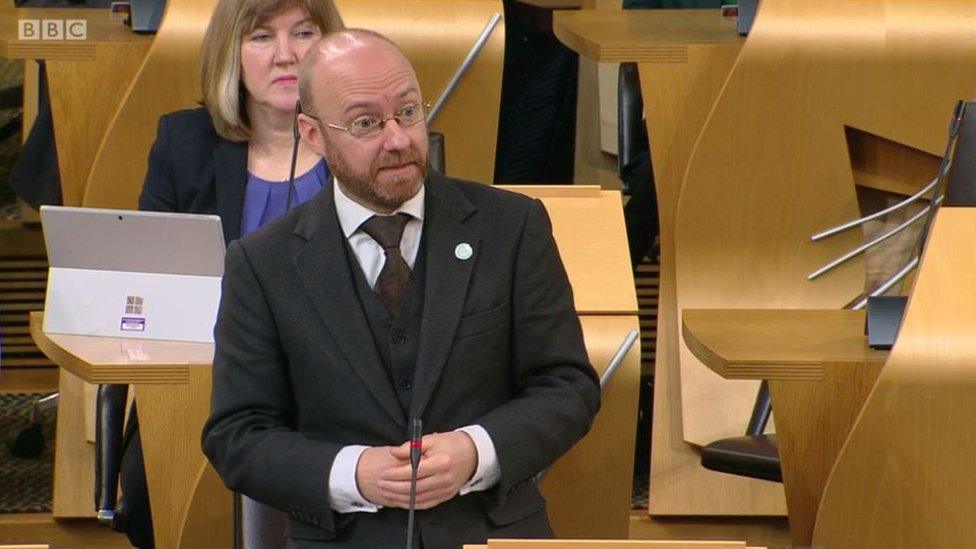
Patrick Harvie's Greens may be well placed to strike a deal over the coming Scottish budget
Which leaves the Greens. Yes, they also took a different stance on tax from the SNP, advocating substantial reform to leave upper earners paying more.
But, against that, they are more intuitively open to engaging with the SNP on the grounds that both parties support independence.
Plus, to repeat, Patrick Harvie appears the most willing to talk - in that he has already submitted his proposals and repeated them today in questions to the First Minister.
He wants investment in energy efficiency, a top up to child benefit and an extension of the use of the Living Wage.
Ministers, I suspect, could look at these and other ideas - without necessarily conceding the entire package.
But, again, there is tax. Mr Harvie has today repeated his tax proposals and warned that his party will only be able to support "a bold and creative anti-poverty budget."
These talks could be tricky.
- Published24 November 2016
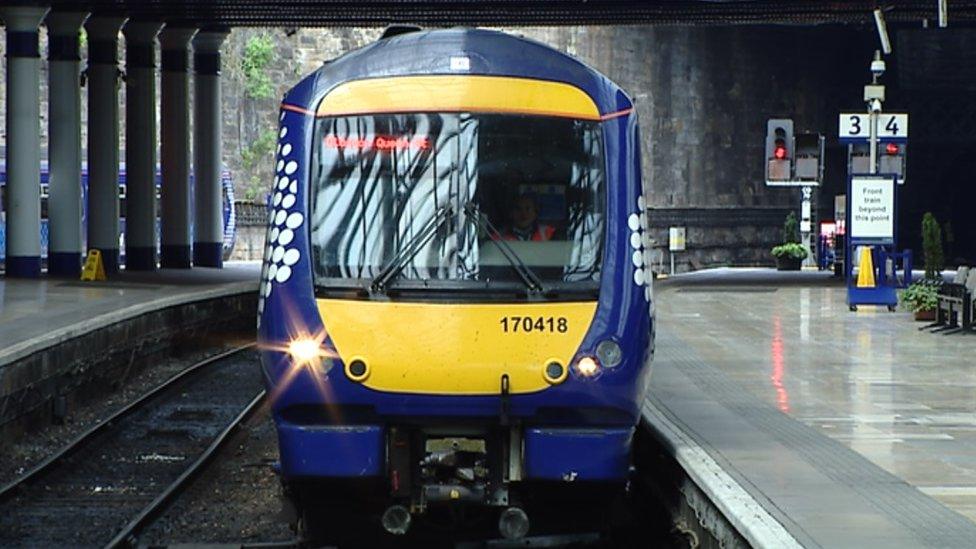
- Published23 November 2016
